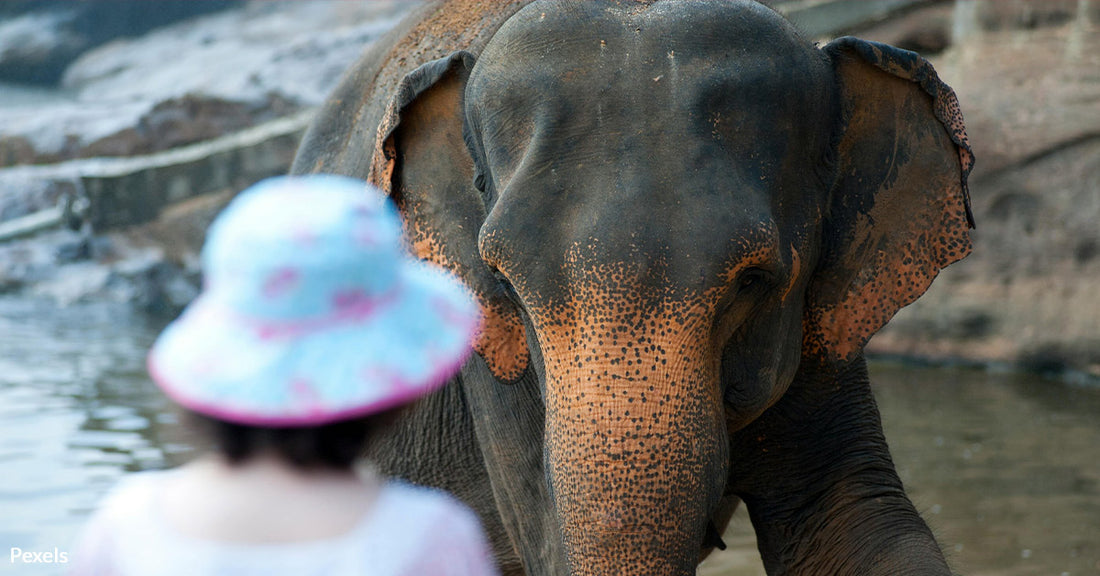Oakland Zoo Takes Bold Step for Elephants, Leaving Other Zoos Under Scrutiny
Matthew Russell
Oakland Zoo has made a significant ethical decision to close its elephant exhibit, sending ripples through the zoo community. The zoo's last remaining elephant, Osh, is being relocated to The Elephant Sanctuary in Tennessee, marking the end of an era for the zoo and setting a new standard for animal welfare.
This move has heightened scrutiny on the Los Angeles Zoo, which has faced ongoing criticism for its treatment of elephants, particularly Billy and Tina.

Oakland's Bold Move and Its Implications
After years of hosting elephants, the Oakland Zoo's decision to close its elephant exhibit and relocate Osh was driven by the recognition that the zoo's facilities were inadequate for meeting the social and physical needs of these complex creatures.
Colleen Kinzley, the zoo’s vice president of animal care, conservation, and research, acknowledged the emotional toll this decision has had on staff who have worked closely with the elephants for decades.
"It's really emotional for people; it's emotional for me," Kinzley told the Mercury News.
Osh, the last elephant remaining at Oakland Zoo, will embark on a 40-hour journey to Tennessee later this year. This decision follows the zoo’s previous relocation of Donna, the last female elephant, to the same sanctuary in 2023. The move was made after consulting with the Association of Zoos and Aquariums’ African Elephant Taxon Advisory Group, which concluded that relocating Osh would provide him with better social opportunities and a more suitable environment according to the Los Angeles Times.
The Oakland Zoo’s decision to close its elephant exhibit aligns with a broader trend among zoos across the United States. In recent years, over 40 zoos have shut down their elephant exhibits, In Defense of Animals reports, recognizing that captivity often fails to meet the physical and emotional needs of these highly intelligent animals.

Increased Pressure on Los Angeles Zoo
The humane decision by Oakland Zoo has intensified pressure on other zoos, particularly the Los Angeles Zoo, which continues to keep two Asian elephants, Billy and Tina, in captivity. Billy, who has been at the Los Angeles Zoo since 1989, has been the subject of ongoing concern from animal rights groups. Critics argue that Billy's confined living conditions contribute to his declining physical and mental health, a common issue among elephants in captivity the Los Angeles Times reports.
In May 2024, the Los Angeles City Council requested a review of the zoo’s elephant care practices following the deaths of two of its elephants, Jewel and Shaunzi, within a single year.
These deaths have been cited as evidence of the zoo’s inadequate care for its elephants, further fueling calls for the zoo to follow Oakland's lead and close its elephant exhibit, reports the Daily Journal. Billy and Tina, the last remaining elephants at the Los Angeles Zoo, are housed in a 6.65-acre exhibit, far smaller than the expansive environments elephants need to thrive. Despite the zoo’s assurances that its elephants receive the highest level of care, the reality of their confined existence has led to increasing public outcry, KTVU reports.

The Role of Sanctuaries in Elephant Care
The decision to move Osh to The Elephant Sanctuary in Tennessee reflects a growing understanding that sanctuaries, rather than traditional zoos, are better equipped to meet the needs of elephants. The sanctuary offers a vast, natural environment where elephants can engage in social behaviors, roam freely, and live out their lives in peace. At the sanctuary, Osh will have the opportunity to reunite with Donna, with whom he shared a positive relationship at Oakland Zoo the Mercury News reports.
Sanctuaries like The Elephant Sanctuary in Tennessee provide a model for how elephants can be cared for in ways that prioritize their well-being over public display. The 3,000-acre sanctuary currently houses 12 elephants, many of whom were rescued from circuses and other entertainment industries. These elephants have lived long lives in a setting that more closely mimics their natural habitat the Mercury News reports.

What the Future Holds for Zoo Elephants
The Oakland Zoo’s decision has sparked a broader conversation about the future of elephants in zoos. With increasing awareness of the limitations and ethical concerns surrounding elephant captivity, more zoos may follow in Oakland’s footsteps. The Knoxville Zoo and Louisville Zoo have already made plans to relocate their elephants to sanctuaries, and other zoos are likely to consider similar actions the Mercury News reports.
As public attitudes shift and the scientific understanding of elephants' needs evolves, the traditional model of keeping elephants in small zoo enclosures may become a thing of the past. The future of elephant care appears to be moving towards larger, more natural settings where these magnificent animals can live out their lives with dignity and respect. For now, all eyes are on the Los Angeles Zoo.
The decision it makes regarding the fate of Billy and Tina could set a precedent for zoos nationwide. If the Los Angeles Zoo follows Oakland's lead, it could mark a turning point in how we care for captive elephants and ensure their well-being for generations to come. Oakland Zoo’s choice to close its elephant exhibit is a compassionate and forward-thinking move that has set a new standard for zoos across the country.

As Osh prepares for his journey to Tennessee, the focus now shifts to the Los Angeles Zoo and whether it will make the ethical decision to follow suit.
The growing recognition that elephants' complex needs cannot be met in captivity is a sign of progress, one that hopefully signals a future where all elephants can live in environments that respect their physical and emotional well-being. Click below to support this humane effort and call for other zoos to follow suit!

